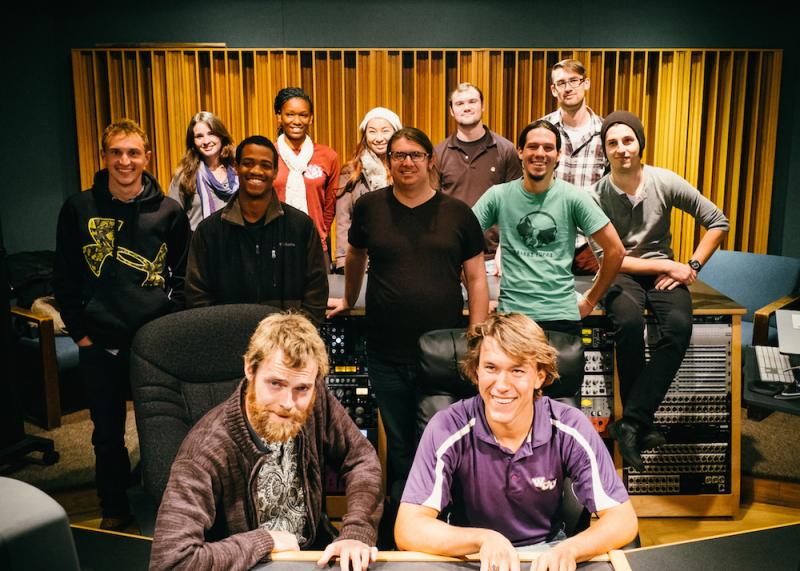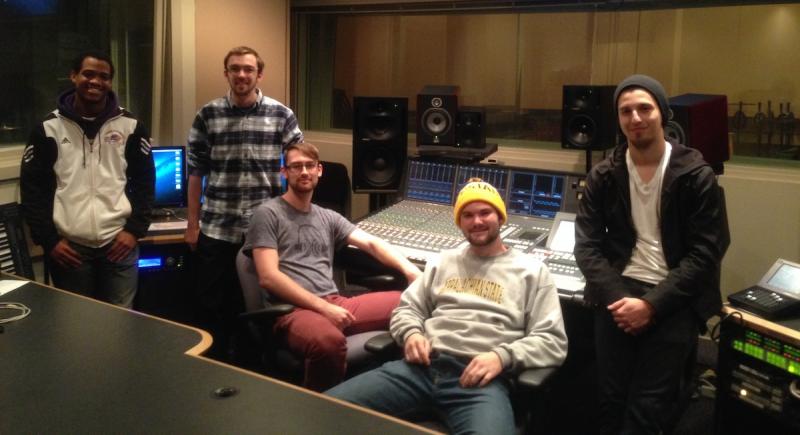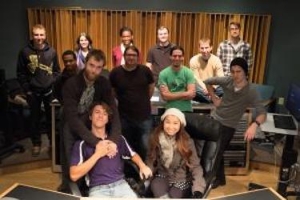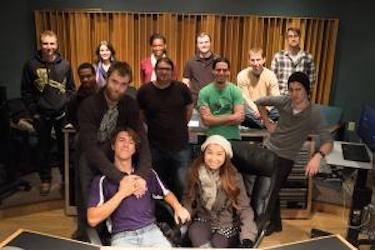This semester, the senior class of Recording and Production students in Appalachian State’s Music Industry Studies program had the opportunity to collaborate with members of Western Carolina University’s Commercial and Electronic Music program. The collaboration came about after ASU’s Scott Wynne met WCU’s Dan Gonko, Recording Engineer of Commercial and Electronic Music, while they worked together at the internationally renowned Aspen Music Festival. Mr. Wynne and Mr. Gonko realized both the differences and similarities between the recording facilities and curriculum at ASU and WCU. They felt that their students would benefit from being exposed to a new facility and from applying their understanding of a recording and mixing studio’s operations to an unfamiliar environment.
The students of each program were given the freedom to design the collaboration to suit their needs. Rather than work together on a single track or set of tracks, each program decided to pursue their own project based on the capabilities of the other’s facility. After visiting the Robert F. Gilley recording studio earlier in the semester, the WCU students decided to visit Boone for a 24-hour period on November 7th and 8th in order to track two new songs with their own jazz band. This allowed them to learn the signal flow of the RFG studio and gain hands-on experience patching from our live room to our outboard gear and into our digital console. This method of analog patching, as well as the routing through RFG’s brand new MADI X8, presented a fresh challenge for the students of WCU.
The four senior ASU students – Joey Diehl, Neal Shaw, Colin Moore and Chris Resovsky – decided that WCU’s facility, with its SSL C200 console, would be best suited as a mixing facility for their individual projects. Each student brought a 40-track ProTools session designed for mixing on the SSL during a two-day stay from November 21st to the 22nd, 2014. After a half hour of minimal training on the console from Mr. Gonko, each student had a four hour block to mix and bounce down their production using onboard equalization and dynamics processing as well as WCU’s TC Electronics effects processor. This gave the ASU students familiarity with another professional digital console in addition to the two digital and one analog console at the Hayes School of Music.
Overall, the collaboration was ideally suited to both programs to help foster an understanding of unfamiliar facilities and practice tracking and mixing on professional equipment. The ability to work with and exchange ideas with other recording programs at North Carolina universities enriches the learning experiences of ASU’s students. This collaboration will hopefully open the door to a greater exchange of projects, ideas and knowledge in future semesters.
-Colin Moore MIS Recording and Production ‘15

Photo by: Dan Gonko

Photo by: Scott Wynne
Links

